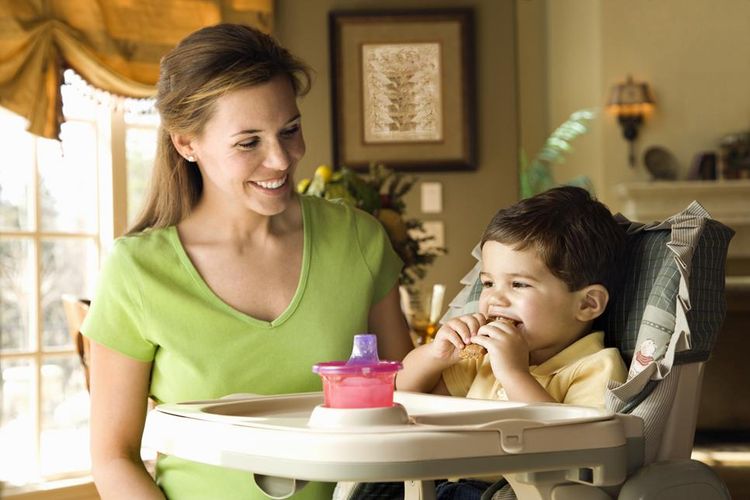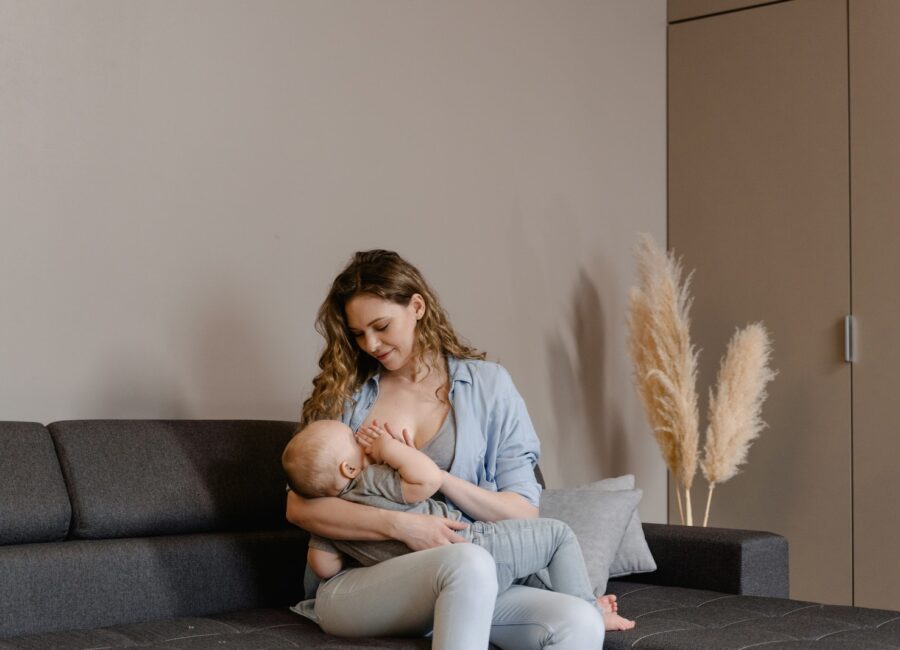
Infants’ social and emotional abilities also experience rapid development from the first year. Every day, your beloved baby gradually learns to socialize with the environment.
Come on, see the complete information so that you can help optimize the process of developing the baby’s social-emotional abilities according to his age!
Social-Emotional Development in Infancy
1st month
Your beloved baby’s social and emotional development is still limited in the First Month. At this stage, your little one can only socialize through eye contact, crying, and small body movements every time he hears the voice of his mother or father. That doesn’t mean you don’t need to invite him to interact.
As much as possible, invite your little one to chat more often and as early as possible. It strengthens the psychological closeness with the baby, but it also stimulates the sense of hearing.
2nd month
Your little one’s social and emotional abilities increase in the second month. This time, they started to respond in the form of a smile. Baby is also more interested in looking at other people than his objects. He enjoys being invited to interact and play, mumbles, and shows angry expressions when he feels uncomfortable.
In the growth and development of this baby, the mother advised to invite him to play more often and meet new people. That way, he is trained to accept the presence of new people so that he grows as a brave child.
3rd month
In the third month, he can start interacting with his mother and the people closest to him. Usually, the baby does this by throwing an adorable smile and murmuring while looking at the person he interacts with.
Your little one’s smile is usually accompanied by body movements, such as stretching your arms, raising your arms, and moving your legs. It doesn’t stop there. The baby’s social and emotional abilities are also improving because he can imitate some expressions. For example, your little one will smile when the person who invites them to interact smiles.
4th month
In the fourth month, your little one generally shows a particular interest in other babies. When meeting other babies, he will look enthusiastic and happy.
In addition, he is also more interested in the voices of children or other babies, whether heard directly or through television. Babies generally also start to laugh when interacting with other people or tickled.
5th month
When the age of five months, babies usually begin to distinguish between family members and other people. When interacting with the mother or other family members, the little one usually tends to be more accessible. Meanwhile, when interacting with other people, he tends not to be as active as usual because he tries to recognize the person.
Generally, your little one will be more assertive when clearly expressing wishes and refusals in the fifth month. That certainly helps Mother and Little to interact better.
6th month
At six months, your little one likes to play with people. He tends to get bored more easily with his toys but doesn’t get bored quickly with you and the people closest to him who invited him to play.
The nature and character of the Little One are usually also starting to appear. You can begin to know the surface of your favorite baby through his attitude every time you interact. And he had also started to recognize his name. Every time a baby’s name is called, he will turn around and respond in the form of a smile or a murmur. Of course, this is one form of the child’s rapid progress in socializing.
7th and 8th month

Your beloved baby will begin to enjoy every interaction with other people at this age. He may sometimes be shy or afraid when he meets new people. Considering that your little one has been invited to interact verbally quite often, he will usually start trying to imitate his mother’s words.
According to several articles, this is the initial stage of your little one learning to speak. Usually, babies aged seven and eight months also begin to show affection to those closest to them through touch or soft pats.
9th and 10th month
Entering the age of 9 and 10 months, your little one usually begins to show anxiety when parting with Mom, Dad, or those closest to him. In addition, he also began to show displeasure when ignored. If he feels that he is not being cared for, the baby will usually start making loud noises, such as crying or screaming for attention.
With little one’s ability to interact with you and the immediate environment is also increasing because at this age, he begins to understand some commandments, such as “sit,” “eat,” “drink,” and so on.
11th and 12th month
Between 11 and 12 months, babies usually begin to understand kissing as physical contact to show affection. At this age, your little one is generally happy to give kisses to those closest to him when asked. On the other hand, he will not do this to someone he has just met.
Psychologically, your child also tends to be more emotional once they are 11 and 12 months old. When them is happy, they will show it by laughing more expressively. When angry, they will deliver it clearly, not only through crying but also through physical movements, such as hitting, kicking, etc.

Infancy is the stage of development of the baby’s social and emotional abilities.
It would help if you remembered that each child’s social and emotional development might differ. It could be faster or slower. So, there is no need to panic if the effect is not as fast as a baby his age.
Hopefully, this information can help mothers monitor their child’s development and social and emotional abilities in infancy.



